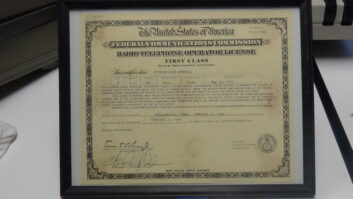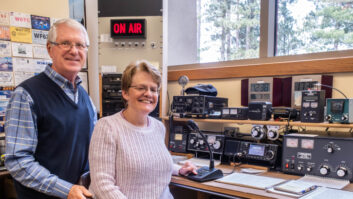The leadership at iHeartMedia opposes cutbacks in interference protections for AM Class A stations in the United States.
We knew this already; but the big media company has taken pains to reinforce its point. Witness the executive firepower involved in a meeting in New York last Monday.
Bob Pittman, CEO of iHeartMedia, met with FCC Commissioner Michael O’Rielly in the Big Apple. Among topics discussed were iHeartMedia’s stance in the ongoing AM revitalization proceeding. Also taking part were Richard Bressler, iHeartMedia’s president/CFO; Dan Dukes, its senior director of government affairs; and O’Rielly’s legal advisor Amy Bender.
According to an ex parte summary filed by the company, Pittman and his colleagues told O’Rielly the commission should take aggressive action in support of revitalizing AM radio.
They said that reducing interference protections for Class A stations would harm rather than revitalize the band. It has been active in putting this argument in front of the FCC, as Radio World has reported, arguing that Class As provide access to important programming for many listeners beyond and between major markets.
A Class A station operates on a clear channel, can broadcast 24 hours per day and has power of 10 kW to 50 kW. IHeartMedia owns 17 Class A stations, may with nationally known call signs like KFI, KGO, WGY and WOR.
IHeart also says that if the commission pursues an FM translator window exclusively for AM owners, it should allow equal participation by all AM stations. “All AM stations, irrespective of class, face challenges in providing a listenable signal,” the company summary stated. “FM translators would allow AM stations to expand audience by reaching listeners who do not tune into the AM band due to signal quality or other issues.
And the FCC should authorize all-digital operation but only on an experimental basis, given the small number of HD Radio receivers in the market, Pittman told O’Rielly.
For more on the company’s views on this issue, see Radio World’s Q&A with Jeff Littlejohn at the conclusion of our July 2 story about his own recent meeting with commission staff.












